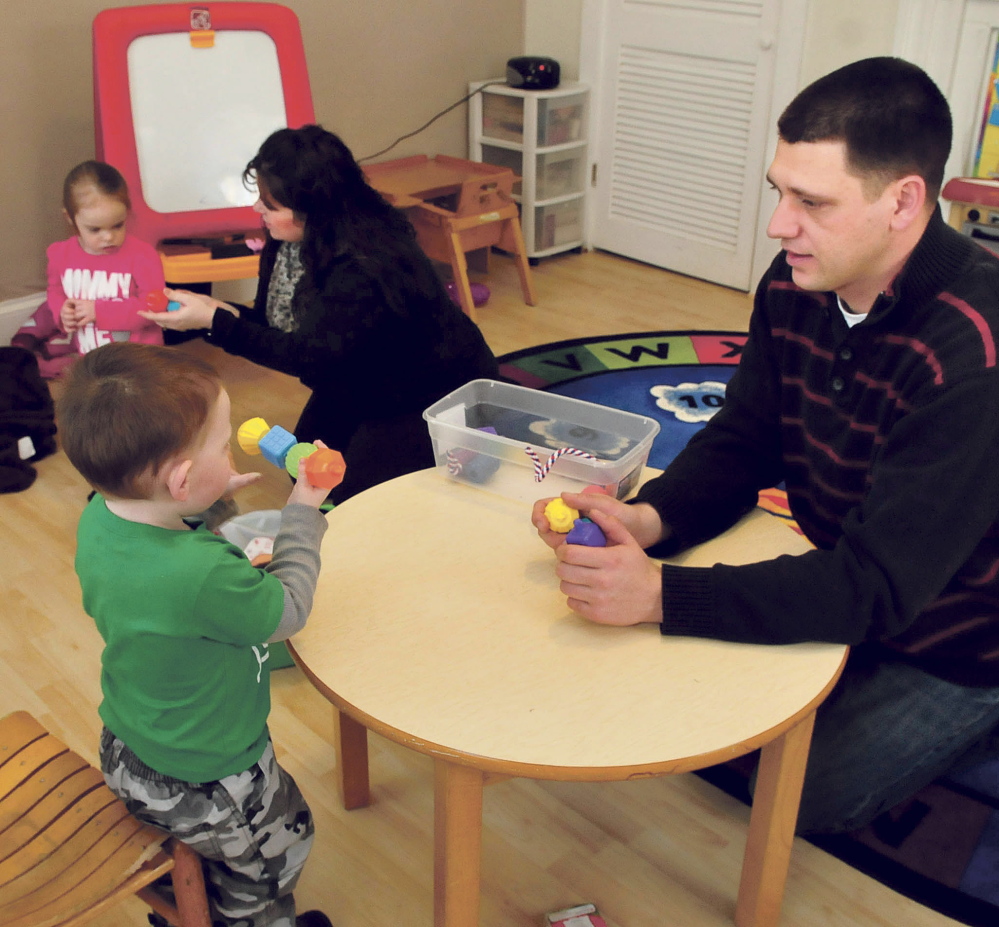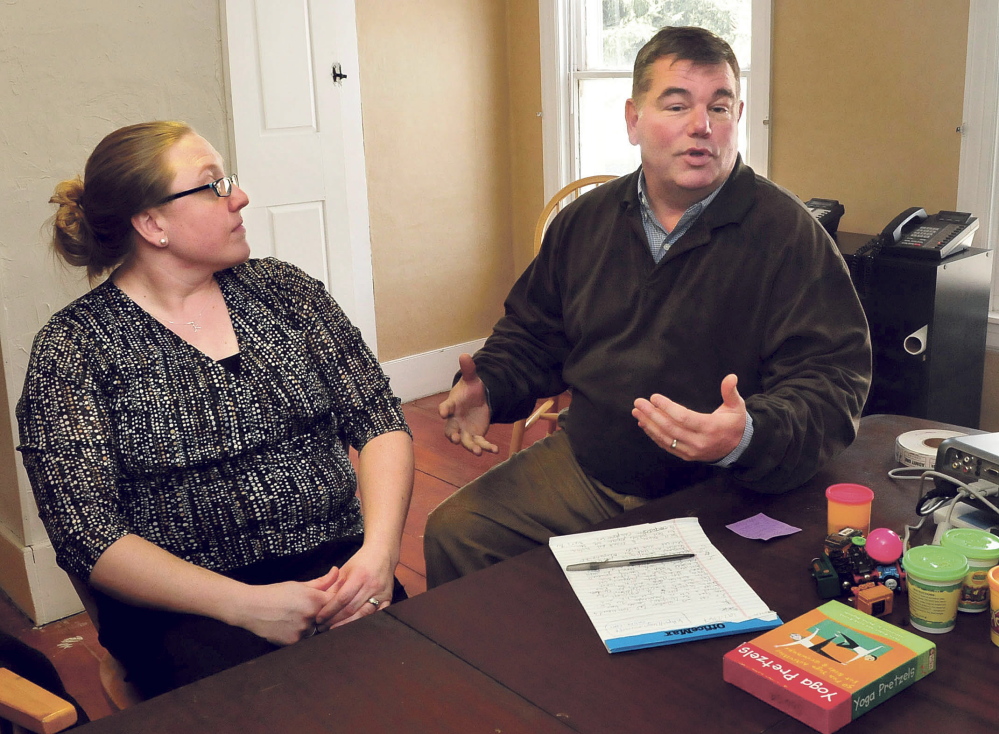SKOWHEGAN — The Children’s Center of Augusta is putting finishing touches on a recently opened second location, in Skowhegan, after nearly 50 years of service in Kennebec County.
The center, in a renovated 1804 farmhouse on Bigelow Hill Road, is designed for young children with autism and developmental delays and disabilities such as pervasive developmental disorder, mental retardation, cerebral palsy and Down syndrome.
Services focus on classroom programs, “floor time” and education using the principles of the Early Start Denver Model for about nine children ranging in age from 18 months to 48 months, Executive Director Jeffrey Johnson said.
The staff concentrates on speech and language therapy, occupational therapy, case management for children and parent education, he said.
“This is exciting for us in that the Skowhegan area has not had a program providing services specifically to young children with autism and other more global delays,” Johnson said. “Research shows that these services are vital to young children in developing language skills and the means to gain independence.”
In one study, he said, 40 percent of children who participated in an intensive therapy program no longer met the criteria to diagnose them with autism.
The Children’s Center in Augusta, off Alden Avenue, has been providing services for children with special needs and their families since 1966. The center in Augusta serves as many as 100 children a day.
In Skowhegan, the old farmhouse at the bottom of Bigelow Hill has a large yard with a playground and apple trees, Johnson said. The 11-room house, in which some rooms still have the original doors, tin ceilings and wide floorboards, is owned by Ker Associates, a real estate trust. The center leases the building and grounds and has invested about $30,000 in renovations since it took over in late October.
Johnson and Elisa Sousa, the Skowhegan site supervisor, said program services are funded through Child Developmental Services, an agency within the Maine Department of Education. The Children’s Center is a nonprofit charitable organization.
“Over the course of the last few years, we finally have some reasonable research that supports specific interventions for young children with autism, particularly around speech, language, play therapy and social interaction,” Johnson said.
The problem for families with children in rural areas such as Somerset County who could use the services provided by the center has been access to those services, he said. Research shows that the earlier the diagnosis of a child is made and the more aggressive the intervention is, the better the outcomes, making a rural satellite center in Skowhegan so important, Johnson said.
Early diagnosis, even by an untrained person or parent, is done by observing delays in communication skills in a child. Speech delays can be seen with comparisons to siblings or other children of the same age. A parent also might notice what Johnson calls social disengagement, in which young children don’t make eye contact or don’t like to roll around and play with other children.
The parent then goes to the family doctor with his or her concerns, who in turn will make a referral to the Child Developmental Services, which then makes contact with the Children’s Center for therapy, Johnson said.
The Skowhegan center has nine children enrolled in programs. Another satellite program is planned for March 1 in South Gardiner.
“Research shows that kids do significantly better — they make more gains in terms of their communication, speech, language and social interaction — when they are getting this intervention in a more natural environment,” he said.
Children come with their parents to the quiet, converted farmhouse for six to nine hours a week. Trained staff members also go into each child’s home for more therapy.
Sousa, the site supervisor in Skowhegan, said programs are individualized for each child based on the child’s abilities under the state Department of Education’s special education guidelines. Jonathan Kimball, a doctorate-level behavior analyst, works as a consultant with Sousa supervising the programs at the center.
“You have specially designed plans for them,” Sousa said. “We individualize what their interests are — typically they all have areas where they struggle with communication or social interaction — with a lot of floor time, so it’s not a lot of rote learning and sitting at a desk all the time. It’s a nice hybrid of services.”
Families pay for the services either through their own insurance or through MaineCare, which is the state’s Medicaid program for low-income residents.
Doug Harlow — 612-2367
Twitter: @Doug_Harlow
Copy the Story LinkSend questions/comments to the editors.





Success. Please wait for the page to reload. If the page does not reload within 5 seconds, please refresh the page.
Enter your email and password to access comments.
Hi, to comment on stories you must . This profile is in addition to your subscription and website login.
Already have a commenting profile? .
Invalid username/password.
Please check your email to confirm and complete your registration.
Only subscribers are eligible to post comments. Please subscribe or login first for digital access. Here’s why.
Use the form below to reset your password. When you've submitted your account email, we will send an email with a reset code.